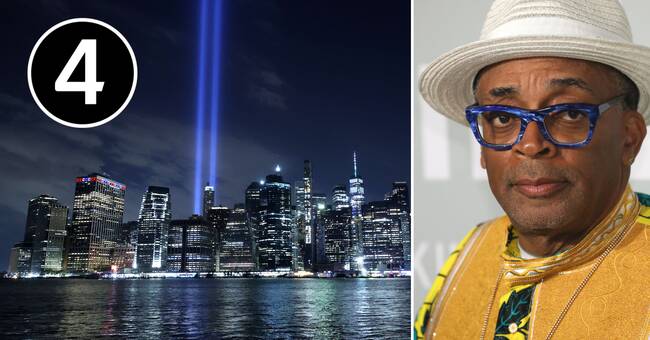Spike Lee's new mammoth documentary ends with strong love tributes and in-depth reports on New York's handling of the terrorist attack on September 11, 2001. But the series begins in the near future and seeks its way back.
It first highlights New York as the epicenter of the corona pandemic and focuses on the Black Lives Matter demonstrations against racist violence that erupted at the same time.
Up to eight hours and over 200 interviews with everything from Modernavaccinet's inventor Dr.
Kizzmekia Corbett and Mayor Bill de Blasio to comedian Jon Stewart.
Spike Lee takes on September 11th
with great respect for the dead, the rescue service and the city's residents who came together.
He meets New Yorkers who got cancer after inhaling cement, glass and freon as they tried to save people from the rubble.
Despite the fact that the politicians had said that the air was safe, and in retrospect did not want to pay sickness benefits to those who were dying.
The documentary sympathetically chooses not to give the terrorists any playing time, but points the point at how New York's rulers in particular handled the crisis.
Both then and now.
And Spike Lee manages to place the chaos in a historical and cultural context.
As the first case of a "Karen"
(a derogatory term for a white woman who demands her rights more than is reasonable) in Central Park, racist violence that preceded George Floyd's death and children separated from their parents at the Mexican border .
Lee shows how the unity after the 9/11 attacks has been replaced by a deep division in the American people's soul, but also that the flag-waving patriotism incited hate crimes against people from the Middle East at the turn of the millennium, something that is repeated in hate crimes against Asians in the wake of the pandemic.
Sometimes Spike Lee uses parts of his own filmography
to illustrate.
For example, he cuts together Do the right thing (1989) and the scene where the character Radio Raheem is strangled to death by a police officer with the real-life Eric Garner, whom the New York police strangled to death during an arrest after he sold cigarettes.
NYC Epicenters is politically grossly one-sided and sometimes resembles a campaign film for Democrats Joe Biden and Kamala Harris.
But it is still fascinating in its in-depth study of a certain buffalo and rich New York type that has set the tone for US political culture.
Like Donald Trump, his former lawyer Rudy Giuliani (who was mayor during the 2001 terrorist attacks) and former governor Andrew Coumo, who allegedly hid the death toll at New York's nursing homes during the pandemic, and recently resigned after being accused of several sexual offenses harassment.
NYC Epicenters had to be redesigned
after Spike Lee interviewed conspiracy theorists and the director has appealed to the audience not to judge the final product.
The dubious thoughts have been carefully cleaned away but it is difficult not to keep in mind.
Despite its weaknesses, the film is a shocking documentary series, and it's hard to imagine that anyone else would have done a better job of portraying the New York spirit than Brooklyn's own Spike Lee.

